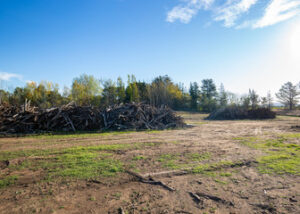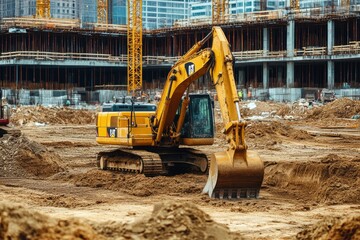Overgrown land is not only unsightly, but can actually be a fire hazard. Cleared land makes for a safer neighborhood and more appealing property, especially when it comes time to sell.
Land Clearing Buda TX involves removing trees and vegetation to create open spaces for construction or landscaping projects. Professional land clearing companies use a variety of methods and equipment to improve efficiency and achieve the best results.
The environmental impacts of land clearing are far-reaching, affecting soil erosion, biodiversity, and the broader climate. Clearing land is necessary to make way for construction, agriculture, and infrastructure projects, but it can have detrimental effects on the environment if not done correctly.
When land is cleared without proper oversight and adherence to strict regulations, the soil is often eroded and polluted, with sediment washing into nearby waterways. This is because the binding roots of existing plants hold the soil in place, but when they are removed, the land becomes vulnerable to wind and rain.
Over time, this can affect the health and productivity of crops, as well as the quality of groundwater. It can also lead to flooding, which can threaten the lives of people and animals.
Another significant issue with traditional methods of land clearing is that they can have a negative impact on biodiversity. Many species lose their habitats when large areas of land are cleared, leading to population declines and extinction in some cases. This loss of biodiversity has global implications, as plants and trees are vital to oxygen production and climate change prevention.
One of the most common reasons for clearing land is to make it safer and more functional. Overgrown vegetation, debris, and dead trees can pose safety hazards, especially in fire-prone areas. By removing these risks, a property can be made safe for construction and recreation.
Land clearing can also improve a property’s appearance and increase its value. It can reveal a property’s potential, which makes it more appealing to real estate investors and homebuyers. It can also enhance a property’s beauty by removing unsightly weeds and enhancing views of the surrounding landscape.
Despite these concerns, land clearing can be done sustainably with the help of experts. They can develop a clearing plan that respects the ecological balance and uses environmentally friendly techniques to avoid long-term damage to the soil and nearby wildlife habitats. They can also use techniques like mulching that add organic material to the soil, boosting its fertility and reducing erosion. They can also minimize the use of heavy machinery to prevent soil compaction, which degrades soil quality and reduces its ability to retain water and nutrients.
Permits and Regulations
Before land clearing can take place, it must be done in accordance with local regulations. These laws govern the type of vegetation that can be cleared, how much vegetation is cleared at a time and the equipment used to clear the vegetation. There are also specific rules for the protection of certain trees, plants and water sources. It is recommended to work with a professional land clearing service that is familiar with local zoning laws and regulations. They will be able to advise on whether or not a permit is required and what steps must be taken in order to secure one.
Obtaining the correct permits for land clearing can be a complicated process, and it is essential to make sure all requirements are met in order to avoid costly project delays. A knowledgeable land clearing company will be able to assist in navigating zoning laws and permit procedures, as well as providing recommendations for the most efficient method of land clearing.
Land clearing is an important step in preparing the site for construction, agriculture and other types of development. This process removes unwanted natural materials such as trees, brush and grasses to allow for proper use of the land. It can also help with pest control, improving soil health and reducing the risk of fire hazards.
The Town of Hillsdale requires a land disturbance permit for any activities that will cause substantial change in the shape, surface area or elevation of any land. Activities that require a permit include logging, timber harvesting, land clearing or any other activity that will disturb the earth.
Applicants are required to submit an application and a fee. The application will be reviewed by the appropriate zoning official and if approved, the permit will be issued.
In order to reduce the time needed for review of a land clearing permit, it is highly recommended that a professional land clearing company be employed. This is because they are accustomed to working within city ordinances and are able to guarantee that your land clearing will be conducted with thorough respect for the environment and surrounding areas.
Methods
Choosing the right land clearing method is an important first step for any construction or development project. The method you choose will have a direct impact on your project’s success, costs, and environmental footprint. Whether you need to prepare a plot of land for construction, agriculture, or landscaping, the right clearing methods will ensure that your project is successful and sustainable.
One common method of clearing land is mechanical, which uses equipment to quickly clear large areas of vegetation. This can include everything from bulldozing to “cut and grind,” where trees are chopped up and ground into mulch on site. For more complex clearing projects, herbicides may be used to kill unwanted plants without harming desired species. Chemical clearing methods are also often used to get rid of invasive species that threaten the health of natural ecosystems.
When selecting a clearing method, you must consider the size of the property and your timeframe. For smaller properties and shorter timelines, manual clearing techniques such as hand or chainsaw clearing are suitable. However, for larger and more complicated projects, mechanical clearing methods are typically preferred.
During the clearing process, it’s essential to use proper safety precautions to avoid injury and damage to surrounding vegetation. Proper maintenance is also important to prevent issues such as soil erosion.
The process of clearing land is usually preceded by a thorough inspection of the property to determine the type and extent of vegetation that needs to be removed. Next, you’ll need to secure the necessary permits and comply with local regulations before beginning work. Finally, a detailed plan must be developed to outline the methods and equipment that will be used for each stage of the project.
In addition to enhancing curb appeal, land clearing can improve the overall quality of your property’s appearance and increase its value. By removing overgrown vegetation and debris, your property will look clean and polished, which can make it more appealing to potential clients or tenants. In addition, by reducing the risk of wildfires, land clearing can help protect your property from fire-related damages.
Equipment
Land clearing is an essential service that transforms properties into the home, business, or agricultural projects of our clients’ dreams. A bare piece of land can look like a blank canvas ready to be brought to life, but before that vision can become reality, it needs to be cleared of trees, shrubs, and other vegetation that have grown on the property over time.
There are many factors that influence the complexity and cost of a land clearing project, including the type and density of vegetation on the site. The topography of the area can also affect how easy (or difficult) it is to clear, as steep slopes and rocky terrain can make it more challenging to navigate with machinery. Additional services, such as stump removal or debris hauling, may also be required, which can add to the overall cost of the project.
Properly utilising land clearing equipment ensures that projects are completed in a safe and efficient manner. This includes routine maintenance to prevent issues such as leaks and faulty safety mechanisms, as well as using machines that are appropriate for the task at hand. It’s important to consider the environmental impact of machinery use as well, as many areas have strict laws governing the protection of wildlife habitats and wetlands. Responsible machinery use mitigates ecological damage and protects local communities.
When selecting the best machinery for a land clearing project, it’s important to choose equipment that’s durable and designed to handle a variety of tasks. The right tools will be able to quickly and effectively remove anything from dense brush and tall grass to large trees and stumps.
There are several different types of equipment that can be used for land clearing, such as tractors, bulldozers, backhoe loaders, scrapers, and more. Each machine has a unique function and is used to tackle specific tasks. For example, a tractor fitted with a blade in the front can perform mowing, brush cutting, and tree uprooting, while a backhoe loader has the capability to scoop up and transport debris such as mulch, soil, and logs.


